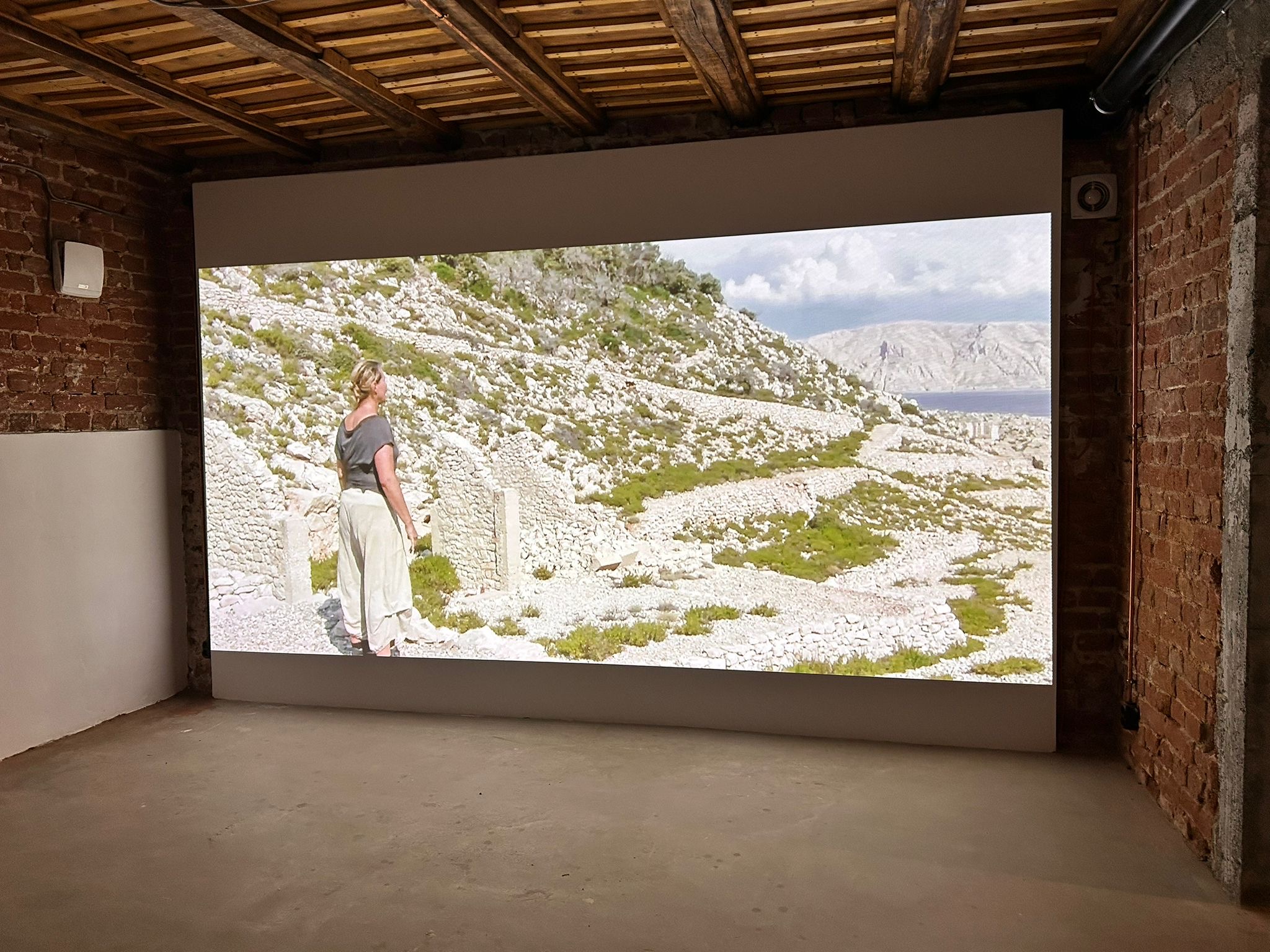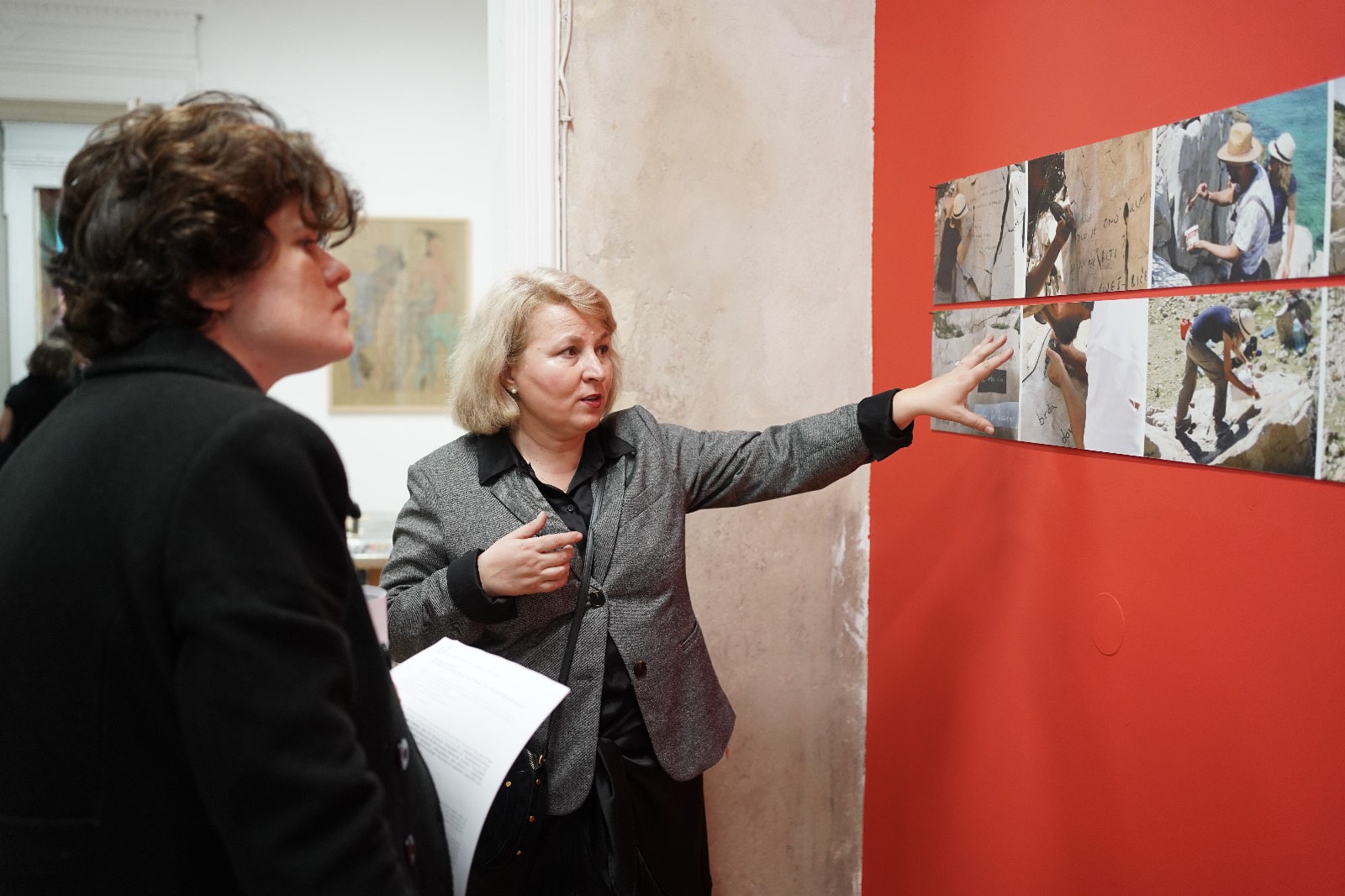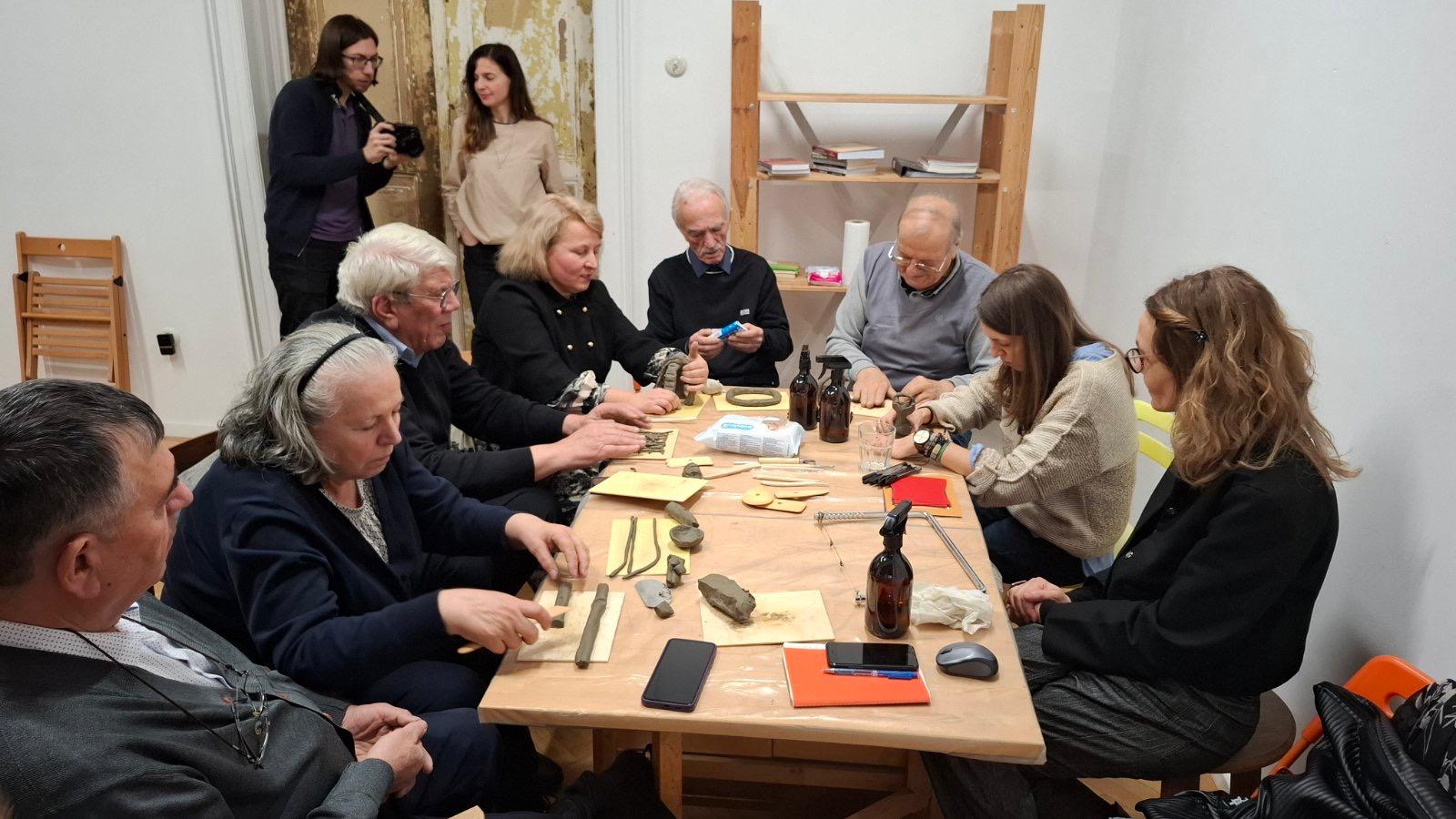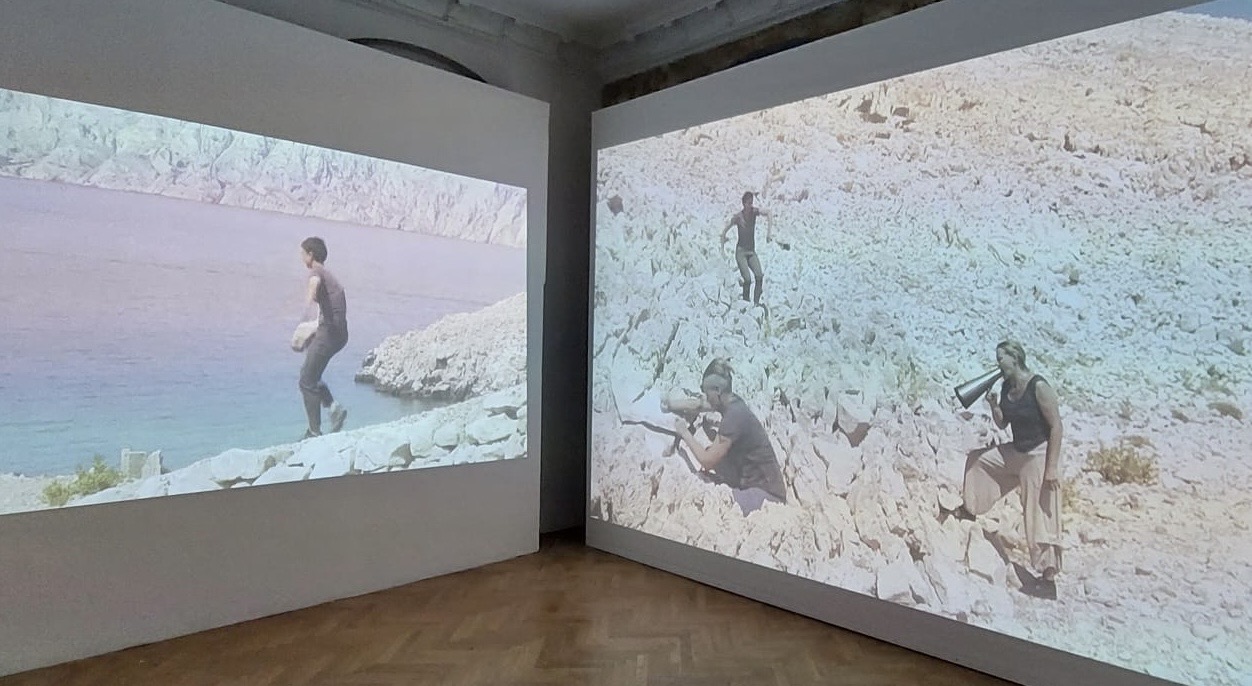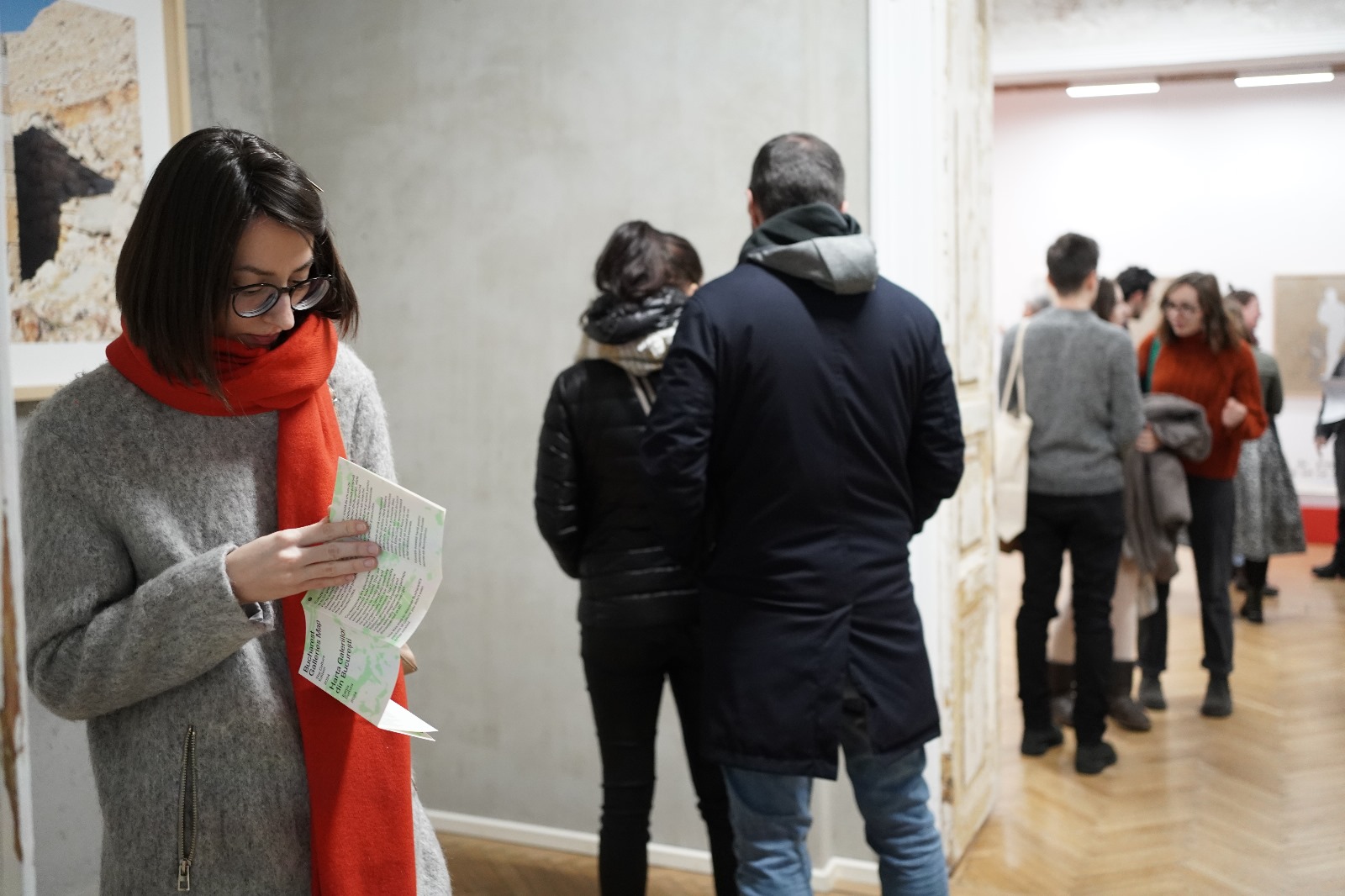Andreja Kulunčić’s Exhibition ‘You Betrayed the Party When You Should Have Helped It’ Opened in Bucharest
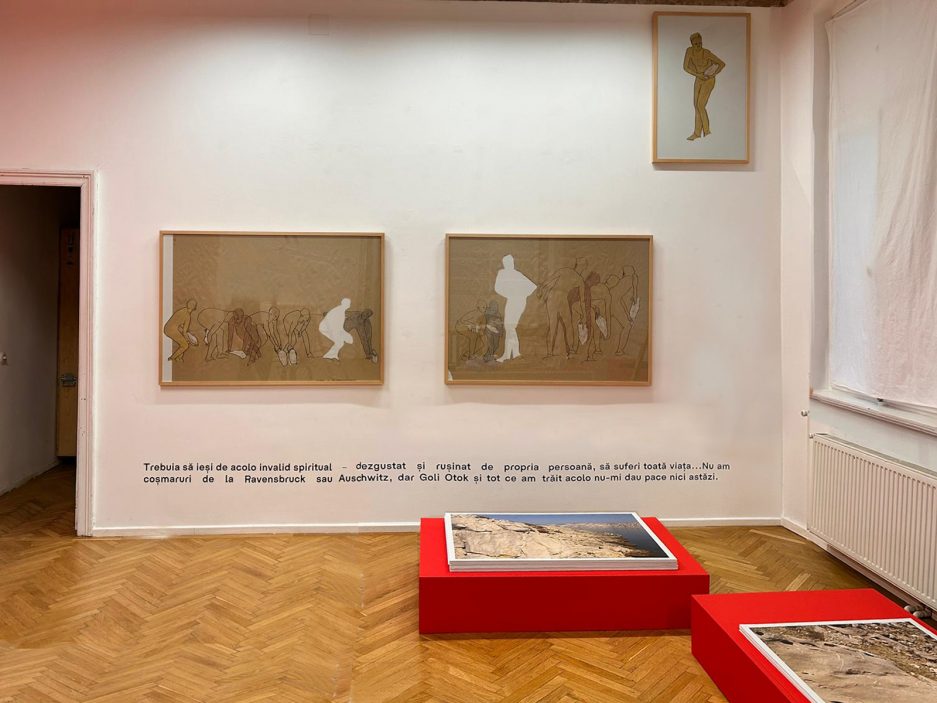
Andreja Kulunčić: You Betrayed the Party When You Should Have Helped It
Collaborators: Anthropologist Renata Jambrešić Kirin, Psychotherapist Dubravka Stijačić
Curators: Irena Bekić, Anca Verona Mihuleț Kim
The fourth iteration of the exhibition “You Betrayed the Party When You Should Have Helped It” by visual artist Andreja Kulunčić opened on December 17, 2024, in Bucharest, at the Anca Poterașu Gallery.
The exhibition is the central segment of an artistic research project of the same name, focusing on the suffering of more than 850 female prisoners in the women’s political camps Goli Otok and Sveti Grgur. This aspect has been entirely omitted from the dominant historical narratives about the Goli Archipelago camps. The camp regime systematically jeopardized women’s reproductive health, ethical responsibility, and care for others while ignoring their gender-specific needs. The prisoners were forced to punish, control, and interrogate each other, which, combined with harsh labor, led to profound traumas and long-lasting silence among women. Through artistic spatial interventions at the locations of Goli Otok and Sveti Grgur, exhibitions, a website, publications, and a series of workshops, reading groups, and discussions, the project deconstructs the intentional amnesia surrounding the history of women at Goli Otok, opening a path to remembrance. It employs a subversive commemorative form – the anti-monument – which does not impose narratives but develops tactics for the continuous renewal of disputed memories, knowledge, and audience emotions.
The Bucharest iteration of the exhibition focuses on disseminating memory while contextualizing Romania’s traumatic history. It is conceived through two stations: the main gallery space, designed as a place for reflection, complementary thinking, and participation, showcasing visual materials such as drawings and photographs depicting outcomes of the artistic research and actions, as well as results of participatory actions developed in collaboration with the public. The second station is an audio-video installation set in two gallery rooms functioning as a simulacrum of the island. By conveying the atmosphere, sounds, and gestural interpretation of the daily tortures experienced by women at Goli Otok and Sveti Grgur, it establishes emotion as a tool for transfer.
The opening began with a discussion featuring historian Claudie-Florentine Dobre and feminist anthropologist Renata Jambrešić Kirin on the topic Discomfort of Being a Female Prisoner: The Cases of Yugoslavia and Romania. The opening also included two clay figurine workshops titled “850 Women for 850 Women”, which started in 2022 at the Museum of Modern and Contemporary Art in Rijeka. Participants actively contribute to preserving collective memory of the traumatic past through these workshops, which will continue throughout the exhibition, alongside a reading session.
The Bucharest exhibition is part of the project (In)Visible Traces. Artistic Memories of the Cold War, by Documente – Center for Confronting the Past, funded by the European Union.
Previous iterations of the exhibition were held at the Historical and Maritime Museum of Istria in Pula, the Museum of Modern and Contemporary Art in Rijeka, and the Jorge Vargas Museum in Manila, Philippines.
The project You Betrayed the Party When You Should Have Helped It is supported by the Kultura Nova Foundation, Rijeka 2020 European Capital of Culture, the Ministry of Culture and Media of the Republic of Croatia, the cities of Zagreb and Rijeka, Neda Young, the Friedrich Ebert Foundation for Southeast Europe, and the Romanian Cultural Institute.
https://www.ancapoterasu.com/
https://www.zene-arhipelag-goli.info
________________________________
The exhibition opening took place as part of the project (In)Visible Traces. Artistic Memories of the Cold War, funded by the European Union.
The views and opinions expressed are those of the authors and do not necessarily reflect the views and opinions of the European Union or the European Education and Culture Executive Agency (EACEA). Neither the European Union nor the EACEA can be held responsible for them.



